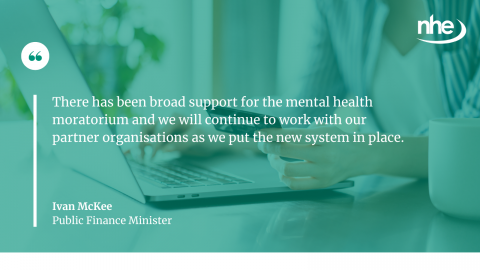The Scottish Government has approved new legislation that will enable a pause on debt recovery action for those with mental ill health.
The Bankruptcy and Diligence (Scotland) Bill was first introduced last April and was eventually voted on in Scottish Parliament last week. Votes worked out at:
- For — 109
- Against — 0
- Abstained — 0
- Did not vote — 20
Those eligible can apply for a moratorium if they are receiving mental health crisis care, or if a mental health professional has confirmed that their debt is exacerbating their mental illness and lengthening the recovery process.
The bill also includes the power to halt debt recovery action until six months after a person has finished their treatment.

Jo Anderson, director of change and influence at Scottish Action for Mental Health, said news of the bill’s passage is welcome and the correlation between poor mental health and debt is clear.
“The relationship between poor mental health and debt is well established: debt problems can lead to mental health problems, and mental health problems can result in debt,” said Jo.
Scottish public finance minister, Ivan McKee, added: “Mental health problems can have a significant impact on a person’s ability to manage their finances.
“This legislation will give them breathing space during which creditors cannot contact them, enabling them to complete their mental health treatment and access money advice services.”
The final bill makes some technical changes to the Bankruptcy (Scotland) Act 2016 — i.e., clarifying the time periods for appeals against decisions by the Accountant in Bankruptcy, which is the organisation that presides over bankruptcies.
CEO at Accountant in Bankruptcy, Richard Dennis, commented: “It has been good to see those with an understanding of debt and those with an understanding of mental health crises coming together to design an approach that can offer hope to those facing both these concerns.”
Image credit: iStock



















